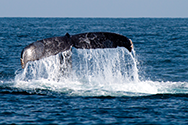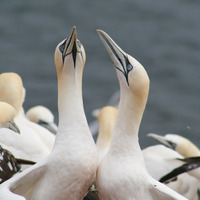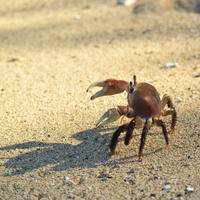Overview
European developments
SeaDataNet is the leading network actively operating and further developing a pan-European infrastructure for managing, indexing and providing access to ocean and marine datasets and data products, acquired from research cruises and other observational activities in European marine waters and global oceans. It connects the National Oceanographic Data Centres (NODCs) and marine information services of major research institutes from 35 coastal states bordering the European seas and also includes IOC-IODE, ICES and EU-JRC in its network.
The SeaDataNet data centres are highly skilled and have been actively engaged in marine data management for many decades and have the essential capabilities and facilities required for data quality control, long term stewardship, retrieval and distribution of marine and ocean data. These data centres are located in the departments of the key marine research institutes and marine management organisations in Europe. Moreover, they maintain national networks involving other organisations in their countries that are responsible for managing marine and ocean data. Together the activities of these data centres extend from the shore to the deep ocean and include marine research and environmental monitoring as well as research activities across a variety of different themes, for example, climate change, marine hydrology and chemistry, hydrodynamics, geology, marine living resources, biodiversity and habitats.
The FP6 SeaDataNet project (2006 - 2011) was preceded by the FP5 Sea-Search project (2002 - 2005) and has now progressed into the FP7 SeaDataNet II project (2011 - 2015). The main goal of SeaDataNet II is to deliver a high quality service for accessing up-to-date ocean and marine metadata, data and data products which originate from data acquisition activities carried out by those European coastal states engaged in the project. This is being achieved by defining, adopting and promoting common data management standards and by establishing technical and semantic interoperability with other relevant data management systems, as well as encouraging good data management practices in various scientific, environmental management, economic management and policy making initiatives.
SeaDataNet is defining the ocean and marine data management standards and principles which are then being adopted and adapted by many other projects in Europe, thereby expanding the number of data centre nodes in the infrastructure and expanding the extent of the data coverage. The Geo-Seas project for geology and geophysics and the Upgrade Black Sea SCENE (UBSS) project for the Black Sea region are two examples of other projects which are adopting and adapting the SeaDataNet standards. SeaDataNet also acts as the core data management component for the EMODNet infrastructure, it has a Memorandum of Understanding with the GMES marine core service MyOcean, and also closely cooperates with EuroGOOS and its regions. SeaDataNet is also taking an active role in the EUROFLEETS and JERICO projects both of which focus on improving the acquisition of ocean and marine data by research vessels and operational oceanographic stations. All of these partnerships and collaborations provide an excellent opportunity to disseminate the SeaDataNet standards and infrastructure to a wider group of data centres and to work towards operational sustainability of the infrastructure.
Geo-Seas is implementing an e-infrastructure for the delivery and exchange of marine geological and geophysical data from 26 European data centres. This is being achieved by adopting andadapting the technologies and methodologies developed by the SeaDataNet project for the purposes of delivering marine geological and geophysical data and is leading to the creation of a joint infrastructure for both oceanographic and geoscientific data. Users are able to identify, locate and access pan-European, harmonised and federated marine geological and geophysical datasets and derived data products held by the data centres through a dedicated Geo-Seas portal as well as through the common SeaDataNet data portal. As with SeaDataNet, the aims of the Geo-Seas project are aligned with European directives and recent large-scale framework programmes on global and European scales, such as GEOSS and GMES, EMODNet and INSPIRE.
EMODNet - European Marine Observation and Data Network is an EU initiative established within the remit of the EU Marine Strategy Framework Directive (MSFD). It is a network of existing and developing European observation systems, linked by a data management structure covering all European coastal waters, shelf seas and surrounding ocean basins. The objective being to facilitate long-term and sustainable access to the high-quality data necessary to understand the biological, chemical and physical behaviour of the seas and oceans. EMODNet will underpin and provide data to WISE-Marine, the marine component of the European Environment Agency‘s Shared Environmental Information System (SEIS). WISE-Marine is intended to fulfil the reporting obligations of the Marine Strategy Framework Directive and to inform the European public on indicators for the good environmental status of sea basins. The SeaDataNet infrastructure and standards have been adopted as the core of the EMODNet data management component. Partnerships from the SeaDataNet consortium successfully bid to develop a number of the EMODNet preparatory actions including the chemical, hydrography and physics lots. These pilots make use of the SeaDataNet standards and basic infrastructure for powering their portals. Partners from the Geo-Seas consortium are engaged with the EMODNet geology lot and as a result are integrating the SeaDataNet standards and services with those developed in the One-Geology-Europe and GeoSciML projects.
EUROFLEETS aims to enhance the coordination of the European research vessel fleet and promote the cost-effective use of these vessels. SeaDataNet standards have been adopted to streamline the flow of marine data from the research vessels to the data centres and SeaDataNet infrastructure.
JERICO - Joint European Research Infrastructure network for Coastal Observatories aims to develop better coordination between the coastal observatories responsible for physical and bio-chemistry parameters as well as contributing to the development of new sensors, procedures, quality control strategies and exchange of know-how for setting up and operating coastal observatories. SeaDataNet standards and services are being adopted by the JERICO project for the purposes of managing the stream of real-time data from sensors to the MyOcean forecasting services and the SeaDataNet data centres.
SeaDataNet has established a close cooperation with IOC/IODE, EuroGOOS and the MyOcean consortium. EuroGOOS is the association of national governmental agencies and research organisations committed to European-scale operational oceanography within the context of the intergovernmental Global Ocean Observing System. MyOcean is actively implementing the GMES Marine Core Service, aiming at deploying pan-European capacity for Ocean Monitoring and Forecasting. The cooperation focuses on improving the availability of high quality and harmonised physical oceanography data sets in real-time and delayed mode (long term archives) in support of operational oceanography.
All these developments undertaken by the SeaDataNet community and in cooperation with associated communities that are participating in related EU funded projects such as Geo-Seas and EUROFLEETS result in standards for the formats of metadata, data, and data products, quality, quality control methods and common vocabularies. These developments result also in services for data discovery, viewing and downloading as well as software tools for data editing, conversions, communication, analysis and presentation that are currently adopted and used by the European ocean and marine community. The extensive range of data types currently in use in the marine domain as well as the adoption and customisation of the upcoming new basic standards from ISO and OGC, provide a lot of scope for future work in this area in order to establish a full range of ocean and marine standards. In this context the SeaDataNet II and related projects are projects exploring and formulating additional and new standards.



